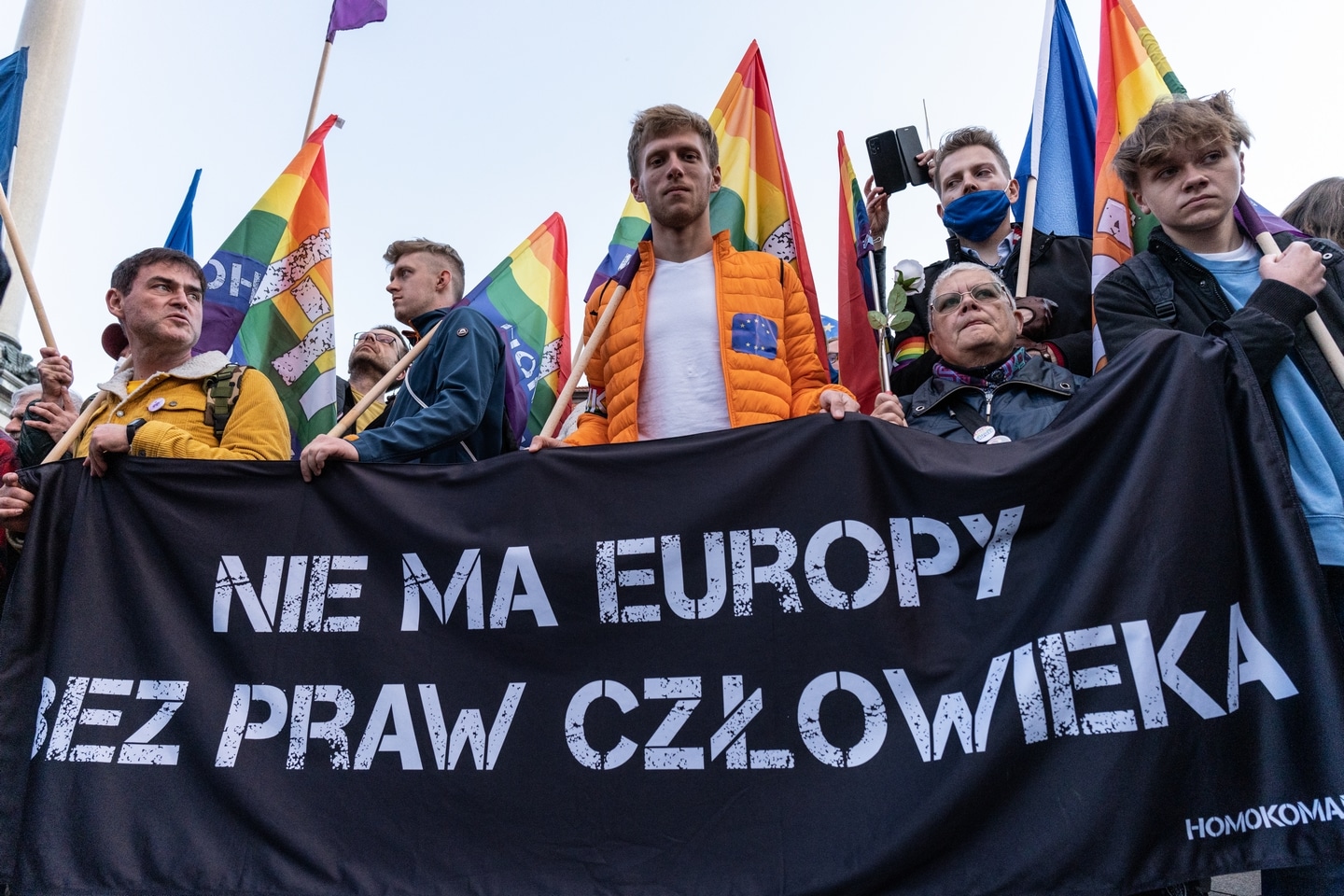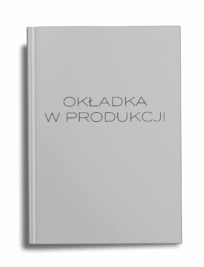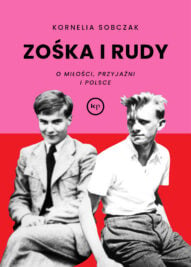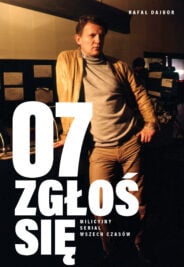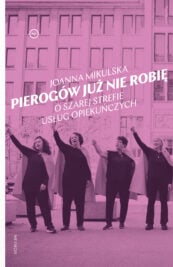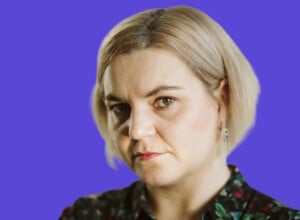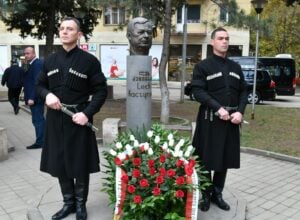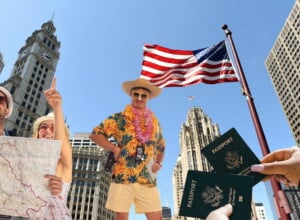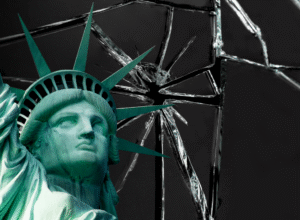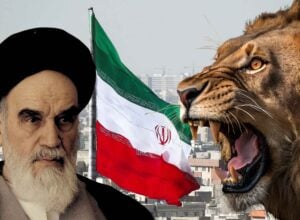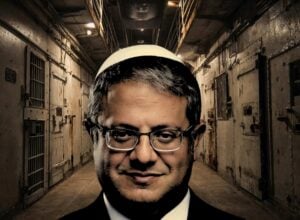Tekst Marty Tycner jest owocem współpracy Krytyki Politycznej z niezależnymi redakcjami polskimi i węgierskimi, w ramach której przyglądamy się kwestiom istotnym z perspektywy obu krajów.
Koncert Tu Warszawa!, wystawa Warszawa – miasto ludzi wolnych, dywan z 14 tys. kwiatów układających się w logo polskiej prezydencji oraz specjalny pokaz świetlno-muzyczny w Multimedialnym Parku Fontann. Tak Warszawa witała początek prezydencji Polski w Radzie Unii Europejskiej w lipcu 2011 roku. Okolicznościowe kwietniki ozdabiały też Gliwice i Rybnik oraz moją warszawską spółdzielnię mieszkaniową „Energetyka”, która dostała z tej okazji dyplom od ówczesnej prezydentki stolicy Hanny Gronkiewicz-Waltz. Wszystko to w ramach akcji „Prezydencja w kwiatach”.
Na konferencjach prasowych i z mównic padały szumne słowa. „Moment dziejowy” – mówił prezydent Bronisław Komorowski. Nieżyjący już mediewista prof. Henryk Samsonowicz porównał prezydencję w Radzie do zjazdu gnieźnieńskiego, ponieważ „potwierdzała miejsce Polski w Europie”. Zaplanowano gigantyczny program wydarzeń kulturalnych na całym kontynencie. Animację promocyjną, w której tancerz w koszuli ze słowiańskim motywem porywa do tańca początkowo mało entuzjastyczną, chłodną kobietę w niebieskiej sukience, stworzył mający już wówczas na koncie nominację do Oscara Tomek Bagiński. Budżet prezydencji opiewał na 500 mln zł.
Dzisiaj jakby skromniej
Wraz z początkiem 2025 roku rozpoczęliśmy kolejną polską prezydencję w Radzie Unii Europejskiej, która trwać będzie sześć miesięcy. Przypominając sobie dziś pompę z 2011 roku, nie sposób nie zauważyć, jak bardzo była ona znakiem swoich czasów. Zaledwie dwa lata później, 2 maja, Komorowski wziął udział w pochodzie „radosnych patriotów”, na którego czele wieziono czekoladowego orła. Zaraz potem nieoczekiwanie przegrał wyborcze starcie o drugą kadencję. Społeczeństwo dało wyraz zmęczeniu pustą symboliką, która przebijała już z celebracji 2011 roku. Podczas przygotowań do prezydencji i w jej trakcie wiele mówiono o tym, jak przełomowe ma ona znaczenie polityczne, jak umacnia pozycję Polski w Unii, ale mało o tym, jak w zasadzie owa pozycja ma zostać zbudowana – bo przecież nie za pomocą kwietników.
W szumie wokół prezydencji 2011 roku nie sposób przeoczyć ledwie co podleczonych kompleksów peryferii. 14 lat temu cokolwiek wielki świat miał do powiedzenia o Polsce, liczyło się o wiele bardziej, niż co sądzili o niej sami Polacy i Polki. Były to czasy emitowanego w telewizji publicznej programu Europa da się lubić, który z wypiekami na twarzach śledziły tysiące widzów, a o kraju nad Wisłą wypowiadały się w nim osoby, których jedyną do tego kompetencją było pochodzenie z Zachodu. Polska opinia publiczna i klasa polityczna były łase zwłaszcza na wszelkie płynące ze światowego i europejskiego centrum pochwały i wyrazy uznania. A prezydencja w Radzie Unii Europejskiej (czy też „prezydencja w Unii Europejskiej” – jak błędnie, acz zapewne celowo, określały ją media) miała oznaczać, że na pół roku to Zachód będzie słuchać Polski, a nie odwrotnie.
Porównując prezydencje 2011 i 2025 roku, można doznać déjà vu: wtedy także premierem był Donald Tusk, a ministrem spraw zagranicznych Radosław Sikorski. Jednym z priorytetów prezydencji było podpisanie traktatu stowarzyszeniowego między Ukrainą a UE – obecnie to otwarcie pierwszego klastra negocjacji akcesyjnych. Ale jest i sporo różnic. Wymowne, że budżet nadchodzącej prezydencji to również 500 mln zł, co, biorąc pod uwagę inflację, oznacza, że polski rząd zamierza wydać wyraźnie mniej niż 14 lat temu. Mniej jest też mowy o wchodzeniu do Europy i uznaniu ze strony Unii, a więcej o sprawach do załatwienia i technicznych szczegółach spotkań i negocjacji.
Z jednej strony jest to reality check. Prezydencja w praktyce daje mikre – a w każdym razie dużo mniejsze, niż sugerowały to dawne, egzaltowane tytuły prasowe – możliwości wpływania na unijną rzeczywistość. Przez pół roku przedstawiciele kraju sprawującego prezydencję układają agendę spotkań Rady Unii Europejskiej, mogą więc decydować, które z propozycji przedkładanych przez Komisję Europejską przyspieszyć, a które odłożyć na później. Następnie wypracowują konsensusy w poszczególnych sprawach między krajami UE i w ten sposób mogą trochę wpływać na ostateczny kształt zaproponowanych przepisów.
Państwo sprawujące przewodnictwo organizuje też debaty i, jeśli chce, nieformalne szczyty liderów Unii, oraz przedstawia program kulturalny. Nie ma możliwości wychodzenia z zupełnie nowymi inicjatywami, chyba że zmontuje koalicję państw i przekona do danej sprawy Komisję Europejską – ale to może robić również poza okresem prezydencji.
Konkrety niezbyt konkretne
Zmiany w ETS2, czyli rozszerzonym systemie handlu emisjami dwutlenku węgla, który polski rząd chętnie odsunąłby w czasie i poluzował, wymieniane są jako jeden z tematów prezydencji – ale tak naprawdę Polska zabiegać będzie o to głównie innymi kanałami.
W pierwszej połowie 2025 roku Komisja Europejska może przedstawić propozycję dyrektywy powrotowej, która ułatwi deportacje imigrantów. Choć jednym z celów polskiej prezydencji jest „walka z instrumentalizacją migracji”, propozycja Komisji nie będzie miała z nim bezpośredniego związku. Co najwyżej Tusk, świeżo upieczony obrońca unijnych granic, lobbujący na różne sposoby za utwardzeniem polityki migracyjnej w UE, może pokazywać ją jako swój sukces.
Do tego sama Rada Unii Europejskiej nie ma centralnej roli w systemie unijnych instytucji. Władza w UE dzielona jest między Komisję, Parlament i rady, w których ucierają się stanowiska krajów. Rady unijne są dwie. W Radzie Europejskiej, która nadaje kierunki polityce zewnętrznej Unii, np. decyduje o sankcjach, zasiadają głowy państw i szefowie rządów. Ma ona stałego przewodniczącego – od niedawna jest nim były premier Portugalii António Costa. Druga rada to właśnie Rada Unii Europejskiej, w której zasiadają odpowiedni ministrowie z krajów członkowskich. Zbiera się ona w dziesięciu konfiguracjach (Rada ds. Ogólnych, ds. Gospodarczych i Finansowych, ds. Konkurencyjności itd.) i w dziewięciu z nich przewodniczy jej odpowiedni minister z kraju sprawującego prezydencję. Obradom dziesiątej konfiguracji (Rady ds. Zagranicznych) przewodniczy wysoki przedstawiciel UE ds. zagranicznych – funkcję tę objęła w grudniu była premierka Estonii Kaja Kallas.
Można powiedzieć, że prezydencja ma bezpośrednią kontrolę nad niecałą połową jednej trzeciej kluczowych instytucji unijnych.
Polska, jak każdy kraj, przedstawiła priorytety swojej prezydencji. Jej motywem przewodnim ma być bezpieczeństwo w siedmiu aspektach. Na pierwszy rzut oka propozycje są dość konkretne. Zmiana sposobu, w jaki Unia finansuje obronność. Zmiana logiki Zielonego Ładu, tak by nie utrudniał Unii konkurowania z USA czy Chinami. Obrona korzystnej dla Polski polityki spójności, której zasady chciałaby zmienić szefowa Komisji Europejskiej. Wynegocjowanie unijnego pakietu farmaceutycznego. Bardzo możliwe, że w niektórych obszarach uda się Polsce osiągnąć zamierzone cele, ale jeśli przyjrzeć się uważniej, mają one w większości polegać na „skutecznym moderowaniu dyskusji”, „wypracowaniu rekomendacji dla Komisji Europejskiej”, „doprowadzeniu do kompromisu w kontrowersyjnej kwestii”.
Niedawno w „Rzeczpospolitej” ukazał się wywiad z Jimem Cloosem, który przez 20 lat pracował w sekretariacie Rady Unii Europejskiej i ściśle współpracował z państwami sprawującymi prezydencję. Na pytanie dziennikarki o to, czy priorytety prezydencji mają w ogóle znaczenie, odpowiedział szczerze: „nie”. „Wszyscy wiemy, jakie są nasze priorytety i one się oczywiście nie zmieniają. Wiadomo, że teraz np. kluczowa jest nasza odpowiedź na Trumpa czy przyszłość Ukrainy, czyli generalnie kwestie bezpieczeństwa. Każda prezydencja miałaby to jako priorytet. To nie jest polska agenda, tylko europejska. Kwestia dalszych działań po raporcie Draghiego (o konkurencyjności gospodarki UE – przyp. red.) również jest oczywista”.
Prezydencja to więc mało spektakularne posuwanie spraw do przodu i przesuwanie akcentów, żmudne i trudne do sprzedania opinii publicznej. Być może dlatego Polska chce, jak donoszą media, wziąć się za porzuconą ze względu na pandemię i wojnę kwestię zmiany czasu z zimowego na letni. Unia szykowała się do odejścia od zmiany czasu i jest to kwestia, którą przy sprawnie poprowadzonych negocjacjach można by zamknąć w pół roku. Byłaby to rzecz może nie priorytetowa pośród wyzwań, przed jakimi stoją Europa i świat, ale na pewno odczuwalna dla zwykłych zjadaczy chleba, potencjalnie rozpalająca dyskusję i łatwa do opowiedzenia. Inaczej niż w kwestii konkurencyjności czy wspólnej polityki rolnej, każdy mieszkaniec i mieszkanka Europy ma jasny pogląd na temat tego, czy woli czas letni, czy zimowy. Niewykluczone zatem, że to w tej dość pobocznej sprawie polska prezydencja odniesie największy sukces wizerunkowy.
Scheda po Orbánie
Ale jest i inna przyczyna spokojniejszego niż dawniej podejścia do prezydencji. Polska lepiej dziś rozumie, jak działa Unia jako całość. I faktycznie, a nie tylko życzeniowo, zbliża się do jej jądra decyzyjnego. Prezydencja to element złożonej gry, w którą polskie władze potrafią już całkiem umiejętnie grać. Donald Tusk jest złotym chłopcem Unii, doświadczonym eurokratą (był przecież szefem Rady Europejskiej), a po ostatnich wyborach hołubionym przez europejski mainstream pogromcą „prawicowego populizmu”. Wyrasta więc na ważną figurę w europejskiej układance, zwłaszcza że w tym samym czasie upada gabinet Olafa Scholza w Niemczech, a we Francji Emmanuel Macron gasi kolejne kryzysy rządowe.
Do tego ze względu na wojnę w Ukrainie oczy Europy i świata zwrócone są na wschodnią flankę NATO, a polskie władze (oddając sprawiedliwość: zarówno obecne, jak i poprzednie) sprawnie wchodzą w rolę lokalnego lidera. Nie bez znaczenia jest też, że na tle potężnych, ale słabnących Niemiec i stagnacji w wielu krajach Unii polska gospodarka jest dynamiczna, coraz mocniejsza, widać nawet oznaki wychodzenia z pułapki średniego rozwoju: rosną płace realne, a struktura gospodarki zmienia się na nieco bardziej innowacyjną.
Jeśli rząd dobrze to rozegra, przez najbliższe pół roku umacnianie się pozycji Polski może przyspieszyć. W styczniu w USA swoją drugą prezydenturę zacznie Donald Trump, a to oznacza najróżniejsze wstrząsy dla Europy: gospodarcze, dyplomatyczne, obronne. Unia będzie musiała obrać nowy kurs względem Stanów Zjednoczonych. Jednocześnie możliwe jest, że rozpoczną się rozmowy o przerwaniu walk w Ukrainie. Polska stanie przed dylematem, czy domagać się uczestnictwa w nich – bo wprawdzie zbuduje to jej pozycję, ale może oznaczać, że polski rząd przyłoży rękę do rozstrzygnięcia bardzo bolesnego dla Ukrainy. Niewątpliwie będzie to jednak moment, by pokazać się na arenie międzynarodowej.
Pół roku temu, gdy prezydencję w Radzie Unii Europejskiej objęły Węgry, premier Viktor Orbán wyruszył na misję pokojową własnego pomysłu. 2 lipca spotkał się w Kijowie z Wołodymyrem Zełenskim, 5 lipca w Moskwie z Władimirem Putinem, 8 lipca w Pekinie z Xi Jinpingiem, a 10 i 12 lipca w Waszyngtonie z Recepem Tayyipem Erdoğanem i z Trumpem, wówczas republikańskim kandydatem na prezydenta. Chciał namówić mocarstwa zaangażowane w konflikt, by usiadły do stołu negocjacyjnego. Niekonsultowany z nikim objazd wywołał furię w Brukseli. Ówczesny szef Rady Europejskiej Charles Michel napisał do premiera Węgier, że nie ma on „żadnej roli” w reprezentowaniu UE na arenie międzynarodowej, a unijni komisarze w ramach bojkotu przestali pojawiać się na obradach Rady UE.
Minęło sześć miesięcy, sytuacja międzynarodowa się zmieniła, a Orbán i przed swoją misją nie był unijnym ulubieńcem. Dziś pewnie i Tuskowi oberwałoby się za podpieranie się prezydencją w samowolnych inicjatywach międzynarodowych, ale już delikatne wskazywanie na nią przy dobrze wykalkulowanych ruchach z pewnością ujdzie mu na sucho. Choć więc prezydencja jako taka nie sprawi, że Polska zacznie rozdawać karty w Unii czy w europejskiej polityce międzynarodowej, to w dłuższej perspektywie pozwoli nam skuteczniej zabiegać o swoje interesy. Osobną kwestią pozostaje, czym w zasadzie te interesy są i kto je określa. Przy okazji prezydencji widać jak na dłoni proces intensywnego lobbowania za najrozmaitszymi rozwiązaniami, głównie ze strony biznesu.
Choć najbliższe pół roku może wzmocnić pozycję polskiego rządu na arenie międzynarodowej, to istnieje niebezpieczeństwo, że faktyczne osiągnięcia znów przyćmi rozbuchana retoryka i pompatyczne wystąpienia. Prezydencja pokrywa się bowiem niemal 1:1 z kampanią wyborczą przed wyborami prezydenckimi, a cóż może być bardziej kuszącego dla polskich władz niż promocja obozu rządzącego na „ponad 300 wydarzeniach” w miastach w całej Polsce, na których bywać może także kandydat KO Rafał Trzaskowski?
Czas pokaże, czy tym razem opowieści o polskich osiągnięciach będą wystarczająco wypełnione treścią, by przekonać wyborców.

 Wspieraj
Wspieraj 

 Wspieraj
Wspieraj  Wydawnictwo
Wydawnictwo 
 Zaloguj się
Zaloguj się 
